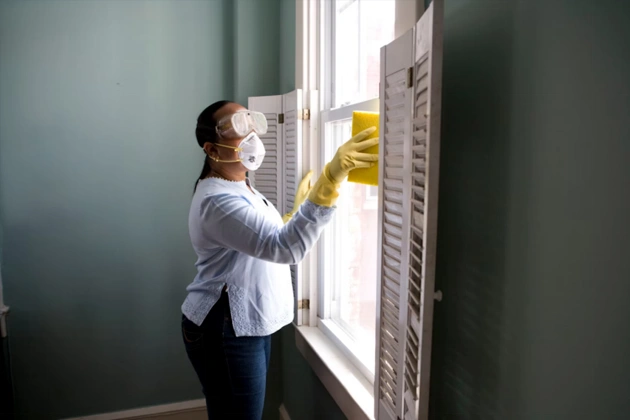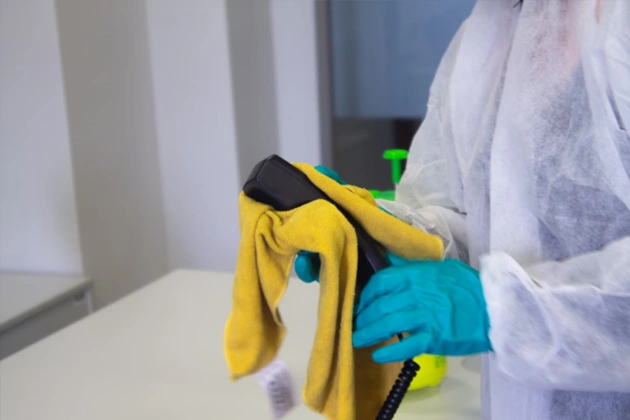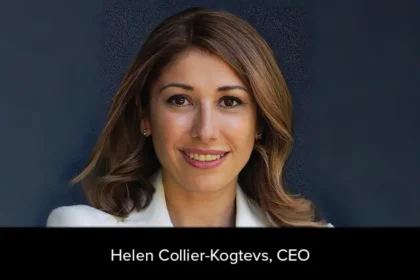A clean and organized office does far more than please the eye. It shapes how people think, behave, and feel during the workday. Every surface, from desks to shared break areas, can influence the atmosphere and the level of concentration employees maintain. Many companies are realizing that cleanliness has a direct effect on output and well-being. Professional office cleaning services have become an important factor in shaping healthier, more productive workplaces. The difference between an average workspace and a high-performing one often lies in the small details, air quality, sanitation, and the absence of clutter.
A well-kept environment can prevent fatigue, lower stress, and limit distractions. When employees feel comfortable and safe in their surroundings, they can focus more easily on their tasks. Productivity rises when workers spend less time worrying about illness or discomfort. By understanding how cleanliness contributes to both physical and mental health, companies can take measurable steps toward better performance and stronger morale.
Reducing Sick Days and Allergens
Workplaces can quickly become hotspots for bacteria and allergens, especially in shared spaces such as kitchens, bathrooms, and meeting rooms. Door handles, keyboards, and telephones are touched by multiple people throughout the day, turning them into prime locations for germ transmission. This is where hiring an office cleaning company can make a measurable difference, since their specialized methods help remove microbes that spread colds, flu, and other infections. When these pathogens are eliminated before they circulate through the office, the number of sick days declines significantly, and employees experience fewer allergic reactions triggered by dust or mold.
Cleaner air and sanitized surfaces improve overall health conditions. Staff members breathe easier and spend less time recovering from minor illnesses. Fewer absences mean smoother workflow and fewer interruptions in team projects. A clean office also signals to employees that their well-being is a priority, creating an environment of mutual respect. Over time, these benefits compound, leading to stronger retention rates and a more stable workforce.
Creating a Positive First Impression
Visitors and clients often form an opinion about a business within seconds of stepping through the door. The atmosphere, smell, and overall appearance of a workplace all send subtle messages about the company’s standards and values. A polished and organized office immediately signals professionalism, reliability, and pride in one’s work. Clean floors, shining windows, and well-kept furniture reflect attention to detail and an appreciation for quality. These impressions can have a powerful effect on how potential clients perceive the business and whether they feel confident in its services.
For employees, the same environment can be equally influential. A spotless and organized workspace builds motivation and pride. When staff members arrive each morning to find their desks tidy, carpets vacuumed, and shared areas fresh, they are reminded that their contributions matter. People tend to mirror their surroundings, and a clean space encourages greater personal responsibility. When the environment is maintained at a high standard, employees often take extra care to keep it that way, reinforcing a cycle of respect and accountability throughout the office.
A well-kept environment also promotes a welcoming atmosphere for everyone who enters. Clients waiting in a clean reception area with comfortable seating and neat décor are more likely to feel at ease. Meetings run more smoothly when the surroundings are uncluttered and pleasant. Every detail, from the scent of the air to the shine of a conference table, helps convey professionalism and care. By maintaining spotless facilities, a company demonstrates that it values not only its clients and visitors but also the people who work within its walls.
Supporting Mental Clarity and Focus
Cluttered and untidy spaces can weigh heavily on the mind, creating distractions that interrupt concentration and reduce overall efficiency. When the eye catches piles of papers, tangled cords, or dusty surfaces, the brain has to process that visual noise, which leads to fatigue and slower decision-making. A professionally cleaned workspace removes this unnecessary mental load, helping employees focus on their priorities without constant visual interruptions. The absence of clutter allows people to think more clearly, stay organized, and maintain steady attention throughout the day.
A clean environment does more than improve focus; it nurtures a sense of calm and control. When workers arrive each morning at a tidy office, they feel mentally refreshed and ready to start their tasks. Clean air and fresh scents from safe, non-toxic cleaning products also play a significant role in supporting wellbeing. Poor air quality or unpleasant odors can trigger headaches, drowsiness, and irritation, all of which affect performance. Professional cleaning eliminates these problems at the source, leaving the air crisp and the workspace pleasant to occupy.
In a well-kept office, employees can transition smoothly between projects without feeling overwhelmed by disorganization. This sense of order contributes to better time management and creativity, since mental energy is no longer wasted on dealing with chaos or searching for misplaced items. Over time, the psychological impact of cleanliness builds resilience and confidence, helping staff maintain focus even during stressful periods. A clean, organized workspace becomes a silent partner in productivity, supporting both mental clarity and sustained performance throughout the workday.
Extending the Lifespan of Office Equipment
Office furniture, electronics, and fixtures experience daily wear and tear. Dust buildup inside computers and printers can shorten their lifespan, leading to costly repairs and replacements. Regular cleaning prevents dirt from settling into crevices and damaging internal components. Professional cleaners use appropriate tools and techniques to care for different materials, protecting both the aesthetic and functional aspects of office assets.
Carpets, for example, can trap dirt and moisture that gradually deteriorate the fibers. Deep cleaning on a scheduled basis preserves their appearance and prevents odors. Upholstery also benefits from professional treatment that removes stains before they become permanent. When businesses invest in routine maintenance, they protect their equipment and reduce long-term expenses. Clean, well-kept items reflect an organization’s commitment to efficiency and care, reinforcing its reputation for quality.
Building a Culture of Responsibility and Respect
Clean offices inspire better habits among employees and influence how people interact with their surroundings. When staff members work in a well-maintained space, they begin to internalize that sense of order and pride. An uncluttered, spotless environment quietly reminds everyone that they share responsibility for maintaining it. Over time, this collective awareness transforms into a cultural norm where respect for the workspace mirrors respect for colleagues and the organization as a whole.
Professional cleaning teams often collaborate with management to set standards for cleanliness that align with company values. These expectations help employees understand their role in keeping shared areas functional and inviting. For instance, when a kitchen or conference room is left tidy after each use, it reflects mutual consideration and accountability. The act of maintaining cleanliness becomes more than a routine; it turns into a form of communication that signals cooperation and professionalism.
Such environments nurture discipline and attentiveness, qualities that extend beyond physical maintenance. Workers who take pride in their surroundings often bring the same care to their tasks, meetings, and client interactions. A company that promotes cleanliness through structure and example sends a clear message about what it stands for: respect, responsibility, and unity. Over time, this shared mindset builds stronger teams, smoother collaboration, and a more positive atmosphere where everyone feels valued and connected to a common purpose.
Supporting Sustainability and Health-Conscious Practices
Modern office cleaning has evolved from a focus on mere appearance to a more thoughtful approach that protects both people and the planet. Many businesses are recognizing that the products and methods used in cleaning can have long-term effects on employee health and environmental impact. Traditional chemical cleaners often release volatile organic compounds that linger in the air and irritate the eyes, skin, or lungs. Shifting to eco-friendly alternatives reduces this exposure and creates a cleaner, fresher atmosphere. Non-toxic solutions, biodegradable detergents, and plant-based disinfectants now play a central role in modern cleaning routines, helping companies maintain hygiene without compromising safety.
Professional cleaners who prioritize sustainability often employ methods that use fewer natural resources. Microfiber cloths, for example, trap dirt more effectively than paper-based materials and require less water and detergent. High-efficiency vacuum systems with HEPA filters capture fine dust and allergens, improving indoor air quality and protecting sensitive equipment. Water-saving techniques and waste-reduction practices also contribute to a healthier workspace and a lighter environmental footprint. When cleaning teams follow structured protocols designed to reduce waste, businesses can meet internal sustainability goals more easily.
This approach aligns with broader efforts toward corporate responsibility. Employees are more conscious than ever about environmental issues, and they want to work for organizations that reflect those values. When a company adopts green cleaning policies, it sends a message of care and forward thinking. Clients and visitors also notice when a workplace feels fresh and free from harsh chemical odors, reinforcing trust in the company’s professionalism and integrity.
A clean office does far more than look professional; it directly influences health, productivity, and morale. Regular cleaning prevents the spread of germs, improves air quality, and reduces distractions that limit focus. Professional services bring the expertise and consistency required to maintain these conditions, protecting both employees and the workplace itself. When cleanliness becomes part of company culture, it signals respect, care, and attention to detail.
The advantages extend well beyond appearance. Employees take fewer sick days, think more clearly, and collaborate more effectively in spaces that feel orderly and safe. Businesses that invest in professional office cleaning set the stage for long-term success. A clean workplace supports a healthy mind, a healthy body, and a stronger sense of shared purpose. Over time, those benefits translate into higher productivity and a reputation that reflects true professionalism.











